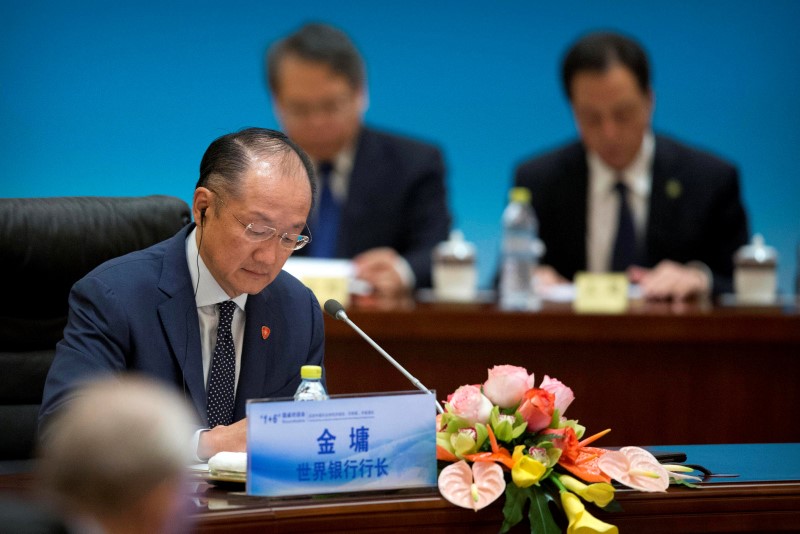Image: World Bank President Jim Yong Kim (L) attends the 1+6 Roundtable at the Diaoyutai State Guesthouse in Beijing, China, July 22, 2016. REUTERS/Mark Schiefelbein/Pool
By David Lawder
WASHINGTON (Reuters) – The World Bank approved new rules on Thursday that aim to expand protections for people and the environment in projects financed by the bank while making it easier for borrowers to comply with its standards.
But the first major update to the World Bank’s safeguard policies in nearly 20 years has drawn fire from some non-profit groups for creating “loopholes” with more vague language and more reliance on borrower country laws and standards.
“The bank has effectively dismantled thirty years of environmental and social protections for the world’s most impoverished and vulnerable peoples,” said Stephanie Fried, executive director of the Ulu Foundation, a non-profit group focussed on forest preservation.
World Bank President Jim Yong Kim defended the changes as a compromise that strengthens many protections while eliminating “onerous” requirements in countries whose environmental, labour and human rights standards match those of the World Bank.
The new standards, which are due to be fully implemented by 2018, will also bring the World Bank’s safeguards more in line with those of other multilateral development banks.
Kim told reporters on a conference call that one key example of the changes will be increased protections for lesbian, gay, bisexual and transgender communities. The bank pulled out of a $90 million loan to Uganda’s health system in 2014 after the government passed a law that imposed life sentences for certain homosexual activities and made it a crime not to report violations.
Kim said the World Bank had committed increased funding to work with its 189 member countries to lift their own environmental and human rights safeguards to match those of the Washington-based development lender.
The new standards come at a time when the World Bank is facing new competition from the Chinese-led Asian Infrastructure Investment Bank, which announced its first loans of about $509 million in June.
Kim said the World Bank could create safeguards so onerous that borrowers might be unable to comply with them, or it could allow unacceptable outcomes for poor and indigenous communities.
“We had to find a path down the middle where we could both ensure that abuses did not happen and at the same time make it possible for borrowers to borrow,” Kim said, adding that it was a challenge getting 189 countries to agree on the new standards.
(Reporting by David Lawder; Editing by Tom Brown)
Copyright 2016 Thomson Reuters. Click for Restrictions.


